Latest News From Health Monitoring
Keeping you up to date on recent initiatives, software enhancements, and the national conversation about public health
Keeping you up to date on recent initiatives, software enhancements, and the national conversation about public health
When a foodborne outbreak was suspected in New Jersey last week, Health Monitoring Systems’ EpiCenter Syndromic Surveillance system helped public health officials in the state to further investigate the outbreak’s cause and point of origin.
Three cases of foodborne illness were reported at a major medical center emergency room, leading the Middlesex County Health Department Epidemiologist to contact other local hospitals to see if similar symptoms were reported in their ERs. After running a report through EpiCenter, it was discovered that two other hospitals had admitted patients complaining of the same symptoms.
“We’re pleased that EpiCenter helped the public health professionals in New Jersey to quickly identify the foodborne illness outbreak,” says Kevin Hutchison, Health Monitoring Systems’ President and CEO.
“EpiCenter provides health professionals with the resources needed to manage public health outbreaks in real-time. The success of this detection comes only a few months after our successful collaboration with the state of New Jersey to measure the health impacts of Hurricane Irene—the results of which will help the state and its residents to better prepare for future weather-related health events.”
EpiCenter™ Syndromic Surveillance System Monitors ER Admissions and Notifies Public Health Departments of Outbreaks (Pittsburgh, PA) — When a foodborne outbreak was suspected in New Jersey last week, Pittsburgh-based Health Monitoring Systems’ EpiCenter Syndromic Surveillance system helped public health officials in the state to further investigate the outbreak’s cause and point of origin.
Just in time for the 2012 London Olympic Games, The UK Health Protection Agency has made upgrades to its syndromic surveillance system—including a new emergency department system and an urgent care system.
Events that bring together hundreds of thousands of fans from countries all around the world have the potential to harbor a disease outbreak. Real time syndromic surveillance makes it possible to track and respond to such an outbreak.
As many of you know, RODS, a software and a research lab at the University of Pittsburgh, provided the first demonstration of syndromic surveillance at the 2002 Salt Lake City Olympics. At the time, one of the biggest fears in the wake of September 11, 2001 was a bioterrorism attack. Over 114,000 acute care visits were monitored in Salt Lake City during the time of (and shortly after) the Olympic games. Thankfully, no outbreaks of significance were detected, according to a report published in the Journal of the American Medical Informatics Association.
HMS routinely works with clients to monitor special events. The control and flexibility of EpiCenter combined with the responsiveness of our client services team, gives public health departments the opportunity to monitor everything form international conferences and festivals to natural disasters. This enables our clients to monitor potential outbreaks and analyze resulting data to develop strategies that improve public health.
While Syndromic Surveillance is optional in Meaningful Use stage 1, it becomes mandatory in the currently proposed stage 2 requirements. Health Monitoring Systems’ syndromic surveillance systems enable our clients to meet meaningful use requirements—provided the data submitted meets several additional criteria.
So what are the requirements to meet those criteria?
Simply put, if the transmission established uses an ONC-certified EHR system and the method of transmission uses HL7 2.3.1 or HL7 2.5.1 message format, then your agency/office meets the stage 1 meaningful use criteria for syndromic surveillance, as defined by ONC and CMS.
However, if your EHR system is not ONC-certified and you are not sending HL7 2.3.1 or HL7 2.5.1 formatted messages, you are not meeting CMS Meaningful Use.
Need more information? Contact us to learn how we can assist you in meeting meaningful use requirements, and the public health needs, in your community.
At the recent CSTE conference in Omaha, Teresa Hamby, MSPH, Data Analyst in the Communicable Disease Service of the New Jersey Department of Health & Senior Services prepared a poster outlining Syndromic Surveillance data collected during and after 2011’s Hurricane Irene.
Recent topics on our blog include some big changes in the way one state is securely sharing and sending information between healthcare providers—as well as a notification system that immediately lets a physician know when a patient has been admitted to an emergency room.
Our mission: Provide services that focus healthcare resources on existing and emergent threats to community health.
Our customers: State and local public health departments and health systems. We currently serve Connecticut, New Jersey, Pennsylvania, Ohio, Wyoming, and several counties in California, covering a total of more than 40 million people.
What we do: Monitor real-time health-related data for community health indicators. We collect data from nearly 600 hospitals and 3,600 ambulatory systems.
Support email:
support@health-monitoring.com
Emergency support: 1 (844) 231-5776
Additional guidance:
EpiCenter User Manual
700 River Ave., Suite 130
Pittsburgh, PA 15212
Corporate office: 1 (412) 231-2020
General calls: 1 (844) 231-5774
Emergency support: 1 (844) 231-5776

